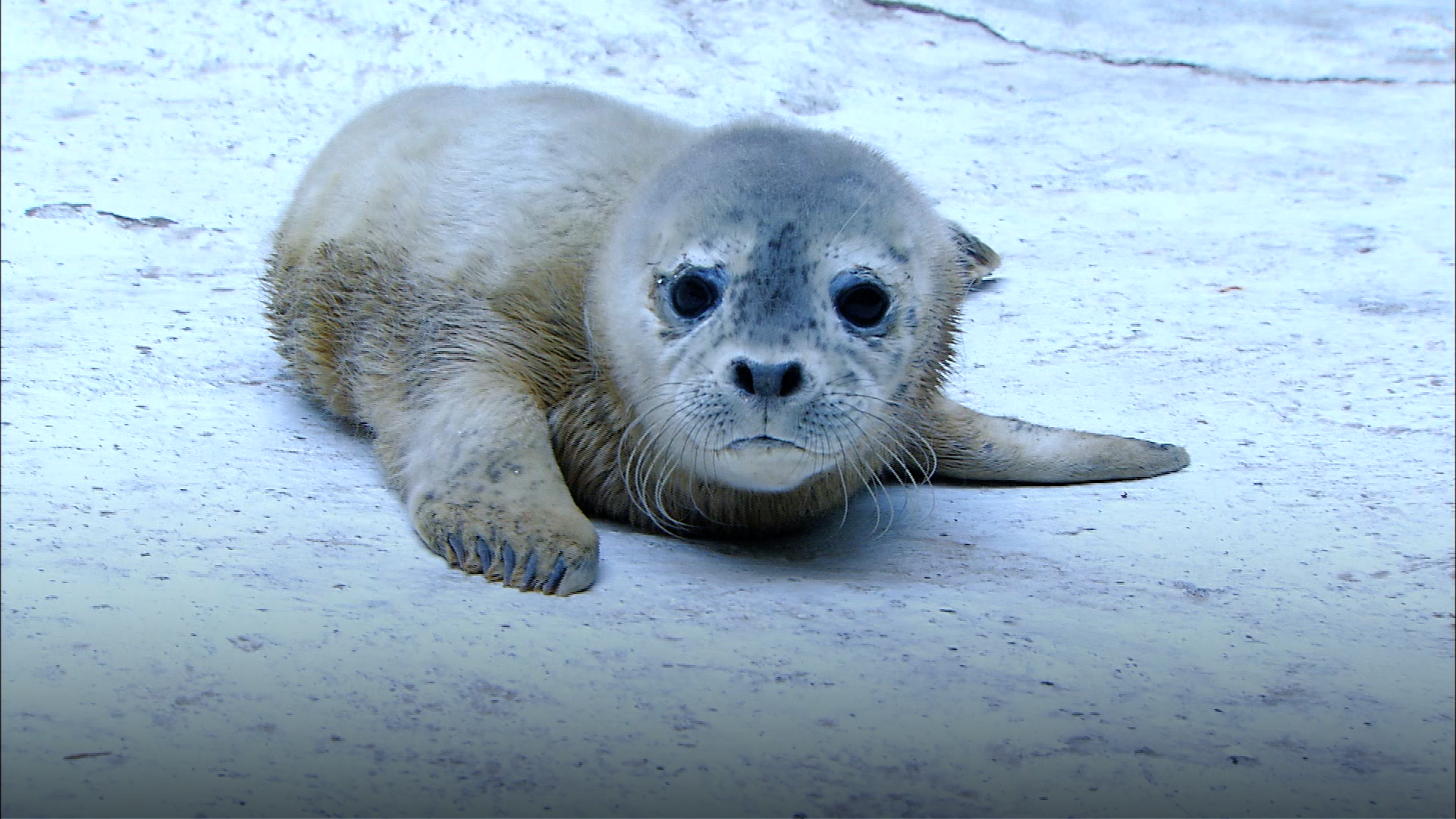Who doesn't like a baby seal?! It's easy to fall in love with the chubby little fur ball at first sight. Here we have a short documentary about spotted seals in China. Click the video to watch some really cute baby seals!
04:51

Here are something else you may not know about seals except for their extreme cuteness:
1. What are we talking about when referring to 'seals'?
In Chinese, "seal" means "sea leopard" and usually refers to an earless seal, such as a monk seal, harbor seal or leopard seal. Sea lions and fur seals belong to eared seals. We have some tips to tell them apart!
2. Whose baby is the cuddly white fur ball?
The pure white baby seal with wet, big, black eyes is the one most often seen on posters. They are babies of harp seal, native to the northernmost Atlantic Ocean and Arctic Ocean. Other seal babies, like you just watched in the video, may not be all white.
3. Seals do not only live in the ocean.
Of course most of them do. But there is one exception: the Baikal seal is the only species of exclusively freshwater seal.
4. Baby seals will be abandoned by their mother and starve for weeks.
Before the pup is ready to forage, the mother abandons it, and the pup consumes its own fat for weeks or even months while it matures. Seals, like all marine mammals, need time to develop the oxygen stores, swimming muscles, and neural pathways necessary for effective diving and foraging. Seal pups typically eat no food and drink no water during the period, although some polar species eat snow. The fast ranges from two weeks to 9–12 weeks, which are among the longest for any mammal.
5. But do not worry. They can survive.
Because they have been fed enough milk before mothers leave. The pup's diet is so high in calories, it builds up a fat store. This is why you may not want to take a sip of seal milk: It contains 50 percent fat.
6. Seals are champion divers.
Elephant seals can hold their breath under water for almost two hours. This is because seals have more blood in their body than other animals. Since blood cells keep the oxygen, seal can dive longer than other animals – and also deeper. They can dive up to 1,000-1,300 feet deep when they are searching for food.
7. And the heartbeats can be surprisingly low, too.
When they dive, seals decrease the heart rate for 50-80 percent. Elephant seals will decrease their number of heart beats from 112 to 20-50 per minute during diving.
8. Some seals are notorious penguin killers.
Documentary fans may be impressed by scenes of leopard seals hunting penguins – they are truly "leopard of the sea"! The fierce hunter may even prey on other seals' cubs.
9. Seals seldom go on shore.
Seals rarely leave the water, they only come ashore to mate, give birth, or escape from predators such as orca whales and sharks. They hunt in water, play in water, even sleep in water!
10. Seals can live up to 30 years.
But many of them do not enjoy such a long lifespan. Seals (and especially baby seals) are victims of commercial hunting. Their fur is used in fashion industry. Other than that, seals are hunted for their oil and skin. Pollution of the ocean or oil spills also negatively affects the survival of seals.
(All pictures via VCG)
(If you want to contribute and have specific expertise, please contact us at nature@cgtn.com.)